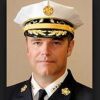Editor’s Note: Even if tornados are not a threat to your coverage area as they are in Dallas, Chief Adam K. Thiel recommends identifying procedures for a natural disaster in advance.
There’s a good reason that so many states designate February through April each year for their “Tornado Awareness” campaigns.
Proving the point, over the past couple months we’ve seen a number of tornadoes strike across the United States, with often tragic results. Surely there are more to follow...
Regardless of whether tornadoes are frequent or rare where you live and work, it’s probably a good time to ask some questions about your personal and departmental preparedness for such an event. As many of us in the Eastern United States learned during the August 2011 earthquake, just because a disaster event is unlikely, doesn’t mean it’s not going to happen to you someday.
It’s important to identify, in advance, where you can shelter from a tornado or other severe weather event; both in your home and in the fire station. It’s also vital to discuss safety considerations for a situation where you might be caught outside, or on the road, with little warning or time to take action.
I’m sure we all have NOAA weather radios in our homes, right?
How about departmental response policies for responding (or not) in high winds, blinding rain/hail, during severe lightning, or when a funnel cloud/tornado is nearby? Speaking from experience, these are difficult discussions when it’s not stormy outside, and they get more difficult when lives (firefighters’ and patients’) are in the balance.
There are many great resources available regarding severe weather safety, like this publication from the NOAA National Weather Service (NWS).
Stay safe!


